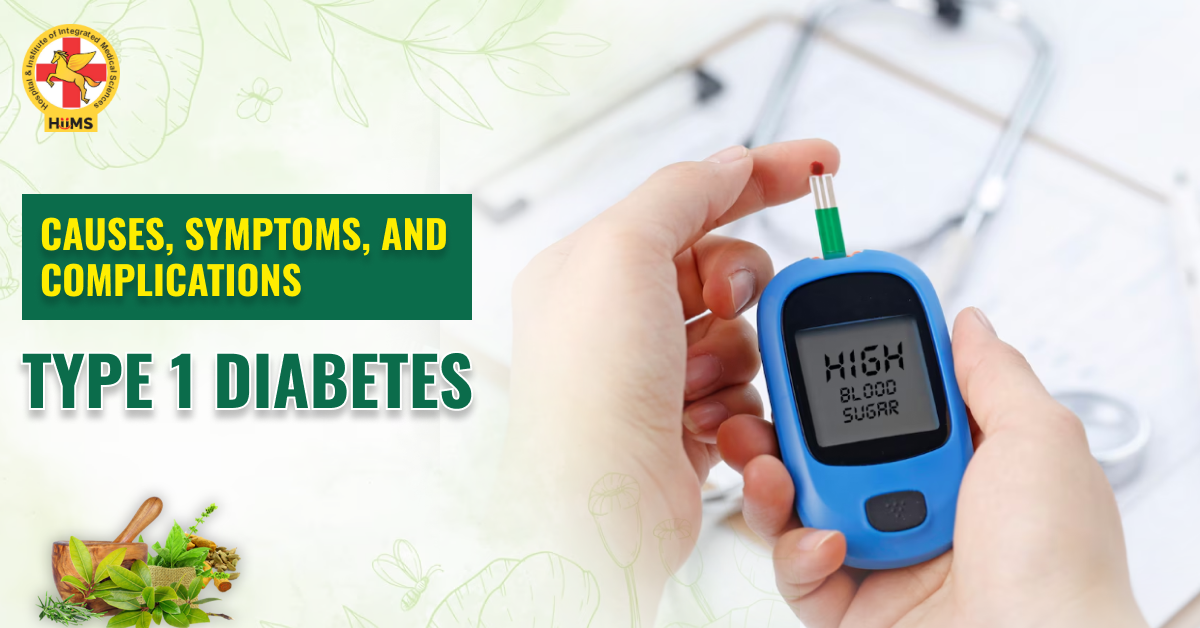Millions of individuals worldwide suffer from type 1 diabetes, a chronic illness that many are still unaware of, including its early warning signals and long-term consequences. This kind of diabetes is regarded as an autoimmune disease and, in contrast to kind 2, is frequently diagnosed in children and young people. For Type 1 diabetes management, early awareness of symptoms and comprehension of the underlying reasons are essential.
Although there isn’t an effective treatment at this time, advances in research and holistic strategies like a diabetes reversal program are giving people hope for better control and a higher quality of life. The causes, early warning indicators, and possible complications of Type 1 Diabetes will be discussed in this blog, along with the severe consequences of ignoring them.
What Is Type 1 Diabetes?
The autoimmune nature of Type 1 Diabetes, in which the immune system unintentionally targets the pancreatic beta cells that produce insulin, is simply explained.
Major Causes of Type 1 Diabetes
- Genetically inclined
- Stimuli from the environment (such as viral infections)
- Autoimmune disease in the family
Common Symptoms
- Frequent urination and excessive thirst
- Weight reduction that cannot be explained
- Weakness and exhaustion
- Vision blur
- Children’s urination
Long-Term Complications If Left Unmanaged
- Heart-related problems
- Injury to the nerves (neuropathy)
- Nephropathy (issues with the kidneys)
- Problems with the eyes (retinopathy)
- Foot infections and ulcers
Importance of Early Diagnosis and Type 1 Diabetes Management
- Tracking blood sugar levels
- Insulin treatment
- Changes in diet and lifestyle
- psychological assistance
- A diabetes reversal program’s contribution to bettering metabolic health
Disease Reversal Program: Madhumeha Mukta Bharat (MMB)
Madhumeha Mukta Bharat (MMB) program is a broad 4-month (120-day) Diabetes Reversal Program for the Diabetes afflicted. Developed by the Ayurveda experts in HIIMS, India’s leading Ayurvedic diabetes hospital, this program combines traditional Ayurvedic wisdom with modern medical technology to help patients manage and potentially reverse their condition.
Steps of the MMB Program
Day 1 – Day 6
Observation Phase
- A CGM sensor is also attached to the patient.
- The person goes ahead with a normal diet and lifestyle during this period.
- On Day 6, the sensor data is reviewed to learn what influence different foods and activities have on blood sugar levels.
Day 7
Intervention Begins
- The patient has a thorough consultation with a nutritionist, a health coach, and the Shuddhi doctor.
- An individualised management diet plan for Type 1 diabetes is presented.
- Support for natural healing is prescribed as herbal remedies from Ayurveda.
- An elaborate medication plan is discussed.
Day 15
First Evaluation
- CGM data is reobtained to monitor progress.
- The CGM device is subsequently withdrawn.
Day 17
- Such a team meeting is made with a diabetologist, a nutritionist, and an Ayurvedic doctor.
- From the progress, other Ayurvedic herbs for Type 1 Diabetes is advised.
Day 30
Follow-Up Consultation
- Check in means sticking to the plan.
- Changes can occur in herbs and dietary consumption.
Day 45
Progress Check
- A health coach contacts the patient to track progress and address the issues.
Day 60
Mid-Program Review
- There is a one-on-one session with the dietitian and Ayurvedic physician.
Day 75
- A health coach re-checks with a focus on mental health, food compliance, and any symptoms.
Day 90
- Major health markers are tested, such as an HbA1c test to determine long-term blood sugar control.
- Ayurvedic herbs are altered according to the situation.
Day 105
Support and Guidance
- The patient is asked to use the remaining questions or problems.
- Continued guidance is provided.
Day 120
Final Consultation
- The last look comes from the medical team.
- Improvements are measured.
- Long-term lifestyle and dietary recommendations are provided to support the achieved reversal.
Can a Diabetes Reversal Program Help?
Even though Type 1 Diabetes is not considered reversible, many integrative health programs focus on improving insulin sensitivity, reducing dependency on medication, and enhancing overall well-being, making Type 1 diabetes management more effective and sustainable.
Conclusion
Type 1 diabetes is a chronic disease that requires ongoing attention, education, and appropriate treatment. Even though it might not be completely reversible at this time, initiatives like the Madhumeha Mukta Bharat (MMB) Diabetes Reversal Program present encouraging strategies by fusing contemporary medical knowledge with Ayurvedic therapy. Quality of life can be greatly improved by understanding the causes, identifying the symptoms early, and taking proactive measures to manage any potential problems. People can regain control and lead healthier, more balanced lives with the correct Type 1 diabetes management strategy, which includes lifestyle modifications and holistic interventions.
FAQs
Q1. What is Type 1 Diabetes?
It is a disease of the immune system that destroys cells that produce insulin in the pancreas.
Q2. Can Type 1 Diabetes be reversed?
Although not completely reversible, such as the Diabetes Reversal Program, improvement in control and symptom relief may be accomplished.
Q3. What are the symptoms of Type 1 Diabetes?
Regular urination, dry mouth, tiredness, unintentional weight loss, and hazy vision.
Q4. How is Type 1 Diabetes managed?
Regular tracking, altered diet, and integrative therapies such as Ayurveda, through insulin therapy.
Q5. What is the Madhumeha Mukta Bharat Program?
A 120-day structured Diabetes Reversal Program from HIIMS, which involves both Ayurveda and modern tools of care for diabetes.


Name: Rohit
Phone: 9810009939
Disease: Diabetics
Comment:
Need to understand program
Name: Rohit
Phone: 9810009939
Disease: Diabetics
Comment:
Need to understand program
Name: Rohit
Phone: 9810009939
Disease: Diabetics
Comment:
Need to understand program